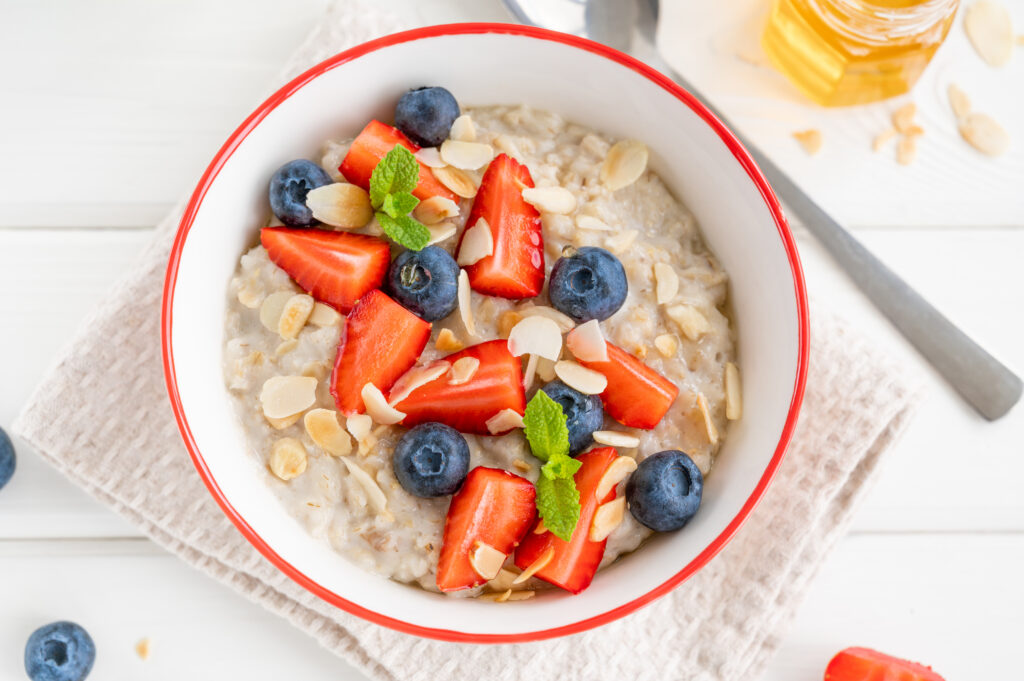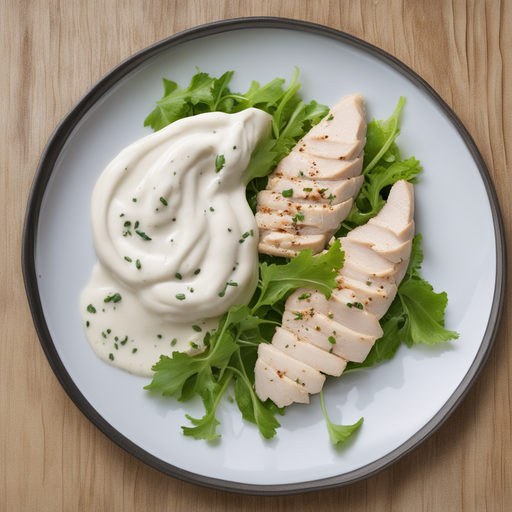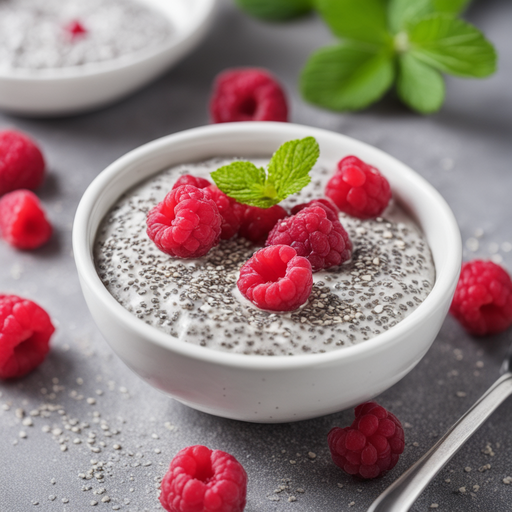A bariatric surgery diet is an essential component of the weight loss journey, as it not only involves modifying eating habits but also aids in the healing process. Of course, dietitians will be there for you to provide the necessary guidance and support. Yet, if you wonder about the specifics of your diet plan, including what, when, and how to eat, read on and learn some more!
You should know there are stages in both the pre and post-diet. These stages are determined by consistency: liquid, half-liquid, soft, or solid, and they aid in a smooth recovery. Each of them has its own restrictions, but you can still create enjoyable meals with the proper ingredients on your list.
Here in the article, you can find some recipe options that will inspire you to eat healthy and in a creative way, and many more:
- A bariatric surgery diet includes a pre-op diet and a post-op diet.
- The pre-op diet prepares you for your bariatric surgery; the post-op diet helps you recover from your surgery.
- There are certain consumption limitations such as refined sugar and saturated fat.
- Both diets are high in protein and it should be prioritized.
- There are tips to plan your diet more easily.
With these tips, your recovery time and adapting to a new lifestyle will get you the very best results you can hope for!
Panoramic view of bariatric surgery diet

The bariatric surgery diet includes two parts: pre-op and post-op. The diet varies depending on the type of surgery you undergo. Not every operation requires a pre-op diet, but every one of them needs a post-op diet. For laparoscopic procedures such as bypass or sleeve, there are different stages and durations for pre and post-op diets, as well as specific nutritional requirements. In contrast, endoscopic surgeries such as gastric balloons, have fewer stages and restrictions and do not require a pre-op diet.
Considering that it is crucial to follow dietary guidelines specific to your type of bariatric procedure. They may differ based on the type of operation. Nonetheless, let’s have a closer look at some general recommendations for bariatric surgery.
DO’s
- Low-calorie foods
- Low and natural food consumption
- Lean meat
- Veggies and fruits
- Low or moderate-GI foods
DON’T’s
- High-calorie foods
- Saturated fat
- Refined carbohydrates
- Refined sugar
- High-GI foods
You might need to eat a low-calorie, low-fat diet, which means eating lean proteins like skinless poultry, fish, tofu, vegetables, fruits, and whole grains. The general rules are no refined sugar or carbohydrates, no fast food or saturated fat. No high glycemic indexed (GI) food, even natural, such as potatoes.
If you lack some vitamins, make sure to take them as prescribed before and after the surgery. Vitamin and mineral balances are important for your health and have an effect on weight loss.
The importance of following these diets
Most especially this diet is actually a part of your recovery. Weight loss comes as a positive side effect.
Bariatric surgery changes the way how the body digests and absorbs food. If you don’t follow the recommendations, you may experience complications. They include dumping syndrome, malnutrition, dehydration, and gastrointestinal problems.
Following a bariatric diet involves making a lifelong commitment to healthy eating habits. This includes practicing portion control, mindful eating, and choosing nutrient-dense foods. All this is important for long-term success and weight maintenance.
Diet balances your macros and micros, and leads to improving your health. Keep in mind that new eating habits will become a crucial part of your lifestyle. By not following them accordingly you will likely have a hard time adapting to your new way of healthy living.
Research has shown that bariatric surgery can have positive effects on a range of health conditions. These conditions are linked to obesity, including type 2 diabetes, high blood pressure, sleep apnea, and joint issues. Following a bariatric diet after surgery can assist you in managing them, and reducing the need for medication.
Navigating the pre-op bariatric surgery diet
There are two reasons for a bariatric pre-op diet:
- shrinking your liver
- adapting you to the post-op process
This diet includes three stages: solid, half-liquid, and liquid. The order of the stages goes exactly the opposite of the post-op diet. You start with solid and move on to the liquid slowly.
The pre-op diet focuses on high-protein and low-carb along with low-fat foods. This will help you lose fat rather than muscle loss.
You are expected to eat 3 meals and 2 or 3 snacks a day along with consuming at least 2 liters of water. Your calorie intake will be between 800-1200 calories. The diet is prepared for you personally and it will provide you the essential nutrients that your body needs.
Is a pre-op diet really necessary?
No, it’s not. Depending on your condition, a doctor may suggest it, but it’s not a necessity. If your BMI is above 40, your doctor will highly suggest you do a pre-op diet to reduce surgical risks.
Also, a pre-op diet will most probably be suggested to you if you consider bariatric surgery such as a duodenal switch or BPD/DS. The aim of the pre-op diet is to prepare you both physically and mentally for the surgery, as well as your post-op diet. Keep in mind it’s only optional in case of surgeries such as a gastric sleeve or gastric bypass, and generally not required if you consider undergoing gastric balloon or band.
Which bariatric surgery requires pre-op diet?
Here, you can check which surgery requires pre-op diet and which doesn’t:
| Type of bariatric surgery | Pre-op diet |
| Gastric sleeve | It depends |
| Gastric bypass | It depends |
| Gastric balloon | NO |
| Duodenal switch | Mostly yes |
| BPD/DS | Mostly yes |
| Lap band | It depends |
| Gastric botox | NO |
Post-bariatric diet: stages, what to eat and not to eat
Post-op diets generally include five stages: clear liquid, full-liquid, pureed food, soft food, and solid food. The duration of the stages is determined by the surgery you’re undergoing.
Although, independent of the surgery you’re undergoing, there are certain rules that do not change. These are:
- not consuming refined carbohydrates, sugar, or saturated fat
- focusing on high protein intake and consuming nutrition-rich foods
Post-bariatric surgery diet guidelines are crucial for a successful recovery and long-term weight loss. Remember that these recommendations can differ for a specific bariatric surgery type. You should always follow the advice of your doctor and dietitian. They will adjust the plan to your particular needs.
Diet stages for every surgery
Here are all the stages of bariatric surgery post-op diets. Some types of surgery need all these steps, others only some. Let’s take a closer look at them, one by one:
- The first stage is a clear liquid diet which is usually followed for the first few days after the surgery.
- The second stage is a full-liquid diet which offers increased protein intake. Additionally, your body starts tolerating a wider variety of liquids.
- The third stage of the diet is pureed food with a smooth consistency.
- The soft food diet allows for the gradual introduction of easy-to-chew and digest foods.
- After completing the transition, you will move to a regular diet with solid foods, which is the last stage. It requires smaller portions and a variety of nutrition-rich food options
The duration of the stages
Here, you can check the stage durations of the bariatric surgeries:
| Gastric Sleeve | Gastric Bypass | Gastric Balloon | |
| Stage 1: Clear liquid | 10 days | 10 days | 7 days |
| Stage 2: Full-liquid | 3-5 days | 3-5 days | 8 days |
| Stage 3: Pureed food | 7 days | 7 days | Depends |
| Stage 4: Soft food | 7 days | 7 days | – |
| Stage 5: Regular food | lifetime | lifetime | lifetime |
What to eat during these stages
After your bariatric surgery, you will go through a liquid to a regular diet. Coming back to regular dietary habits can be challenging and requires your commitment. Keep in mind that your post-op diet will progress in stages. You are going to gradually introduce new foods as your body heals and adjusts to the changes.
| DIET STAGES | Food examples |
| Stage 1: Clear liquid | water, broth, sugar-free gelatin, clear protein drinks |
| Stage 2: Full-liquid | protein shakes, low-fat milk, strained soups, yogurt |
| Stage 3: Pureed food | pureed lean meats, soft fruits, and vegetables |
| Stage 4: Soft food | cooked vegetables, ground or tender meats, soft fruit |
| Stage 5: Regular food | all spices, cauliflower, broccoli, cooked onion and garlic, lettuce |
You need to stay away from:
- Saturated fats, fried meals, and high-calorie and high-sugar foods.
- Carbonated beverages
- Alcohol for at least 6 months because of the intoxication risk.
- Tough meats, raw vegetables, and fruits with skins or seeds in the early postoperative phase. They can be hard to digest and may cause irritation.
- Dense bread and dough in general, as they can cause discomfort, as much as high-lactose milk and dairy. After the surgery, you can experience lactose intolerance
Tips&tricks for bariatric surgery diet
Here are some tips and tricks that will help you ensure proper healing, reduce complications, and achieve long-term weight loss success:
- Start with your protein first
- Drink your water after time
- Do weekly shopping
- Schedule your meals
- Be active and schedule your activity
- Have some bariatric-friendly recipe ideas
Keep in mind that there are only general guidelines after all kinds of bariatric surgery, not each of them specifically.
Start with your protein first
Always prioritize your protein! Among macros, protein is the most needed one for the body, following fat, and carbs as the last. If you don’t start your meal with protein, you will then consume carbs and fat first. This would make you feel full and there won’t be enough space for the protein, which is what you need the most in your diet.
Protein is very important for tissue repair and wound healing. It is especially the case during the recovery period after your surgery.
Protein helps preserve lean muscle mass while your body is losing weight. Without enough protein, the body may use muscle tissue for energy. Protein will prevent muscle loss and improve your metabolism.
Foods rich in protein make you feel full. This can help you follow your post-surgery dietary guidelines and prevent overeating. High-protein meals often contain other essential nutrients. They include vitamins, minerals, and amino acids. All of them are necessary for overall health and can help prevent nutrient deficiencies after bariatric surgery.
Drink your water time after time
Proper hydration is crucial for tissue repair, wound healing, and overall recovery after surgery. Your stomach’s size reduction, or changes in the small intestine after the surgery, can lead to reduced fluid absorption. This way you may become dehydrated. Your hydration plays an important role in the absorption of nutrients in the gastrointestinal tract. It becomes even more important after bariatric surgery.
Being hydrated is crucial for maintaining the body’s electrolyte balance. It is crucial for nerve function, muscle contraction, and heart rhythm. Staying hydrated will also help you prevent common complications after the surgery. They include blood clots, constipation, or UTIs.
Drinking enough water can help with weight loss too. It can control your appetite better and therefore prevent overeating. What’s more, staying hydrated can reduce the risk of kidney stones, which may be a side effect of some bariatric surgeries. Water is involved in storing and releasing fat in fat cells. Staying properly hydrated helps with fat metabolism and overall metabolic function. When losing weight, the breakdown of triglycerides can cause temporary water retention in fat cells.
Do weekly shopping
By planning your groceries, you will purchase the right amount of food and plan your meals accordingly. It will reduce the risk of overeating and prevents any discomfort or complications. This way you will also stay away from trigger foods and choose options that are more gentle on your stomach. Do not stash any snacks at home, because you might be tempted to eat them between your scheduled meals.
Remember to prioritize nutrient-dense foods. You need to get all your essential vitamins and minerals, even when consuming smaller portions. Planning your grocery shopping allows you to select these nutritious options and avoid empty calories. It will be easier for you to follow dietary guidelines and reduce the temptation to snack on something unhealthy.
Schedule your meals
Following a scheduled meal plan helps you consume appropriate portion sizes, preventing overeating and potential complications. Sticking to a planned meal schedule can help in weight loss by regulating calorie intake and giving you optimal nutrient absorption. This way you can avoid frequent snacking, which usually means empty calories.
Eating on a regular schedule helps your digestive system and prevents dumping syndrome, where food passes too quickly from the stomach to the small intestine. Certain bariatric surgery procedures may also impact blood sugar levels, particularly if you suffer from type 2 diabetes. Following a consistent eating schedule can help stabilize blood sugar levels and lower the risk of diabetes-related complications.
Here are some tips to help you stick to your scheduled meals effectively after bariatric surgery:
- Plan your meals ahead
- Keep track of your meals and any symptoms or discomfort
- Shop weekly and buy only the ingredients you need and in the right amount.
- You can consider preparing weekly meal preps.
Be active and schedule your activity
First of all, regular physical activity can help boost your metabolism and burns calories. Together with a well-balanced diet, you will then get the calorie deficit you need.
Staying active can improve regular bowel movements and prevent gastrointestinal problems. This way a healthy digestive system can contribute to a more regular daily routine when it comes to eating. Thanks to this, you’ll be more likely to feel hungry at more predictable times.
Engaging in regular physical activity can help reduce stress. This way you can minimalize mindless eating, which can happen when you are stressed or bored.
Have some bariatric-friendly recipe ideas
Here are some recipes for healthy meals and snacks for your last stage of the post-op diet, which includes solid foods. Start your day with a high-protein breakfast, continue with nutritious lunch, then end with a healthy dinner, after which you will feel good and sleep great. We also recommend different types of healthy snacks, which will ensure that you will not be tempted by unhealthy bites!

Recipe #1:
OVERNIGHT OATMEAL
Ingredients:
- 2 tbsp oat
- 1/2 cup of low-fat milk / plant-based milk
- 1/2 cup of water
- 1 portion of berries
Method:
- Heat the milk a bit
- Mix all the ingredients
- Leave it for 10 mins and put it in the fridge
Recipe #2:
GREEK WASA
Ingredients:
- 1 slice of wasa bread
- 1 tbsp cottage cheese
- 9-10 slices of cucumber
- Parsley
Method:
- Spread the cheese on top of the wasa
- Put the cucumbers on the cheese
- Add parsley as a topping


Recipe #3:
CHINESE CHICKEN BOWL:
Ingredients:
- 80 gr of boneless chicken
- 150 gr broccoli
- 1/4 onion
- Sesame
Method:
- Cut your chicken into pieces (the size of a meatball)
- Cook them in the air fryer or in the oven with 1 tablespoon of olive oil
- Boil/air fry or oven-cook your broccolis
- Julienne cut your onions
- Cook them in the pan without oil (add water if necessary)
- Mix the cooked ingredients in a bowl
Recipe #4:
HIGH PROTEIN JAR CHICKEN
Ingredients:
50-60 gr boiled chicken or turkey breast
3 handfuls of green salad
3 tbsp of low-fat yogurt
1 tsp of tahini
Method:
- Mix tahini and yogurt
- Put the mixture at the bottom of the jar
- Add your boiled chicken (you can add spice if you like)
- Add your salad ingredients at the top
- Shake well before eating


Recipe #5:
CHIA PUDDING
Ingredients:
- 2 tbsp of chia seeds
- 1/2 cup of plant-based milk
- 1 tsp of honey
- 1 piece of sugar-free bitter chocolate
- 1 portion of raspberries
- Cinnamon
Method:
- Heat the milk a little
- Add the honey to the milk and mix it well
- Mix it with chia seeds in a jar
- Add cinnamon and mix it well
- Put the raspberries at the top
- Grate the bitter chocolate and add it as a topping
Thomas-Valdés S, Tostes MDGV, Anunciação PC, da Silva BP, Sant’Ana HMP. Association between vitamin deficiency and metabolic disorders related to obesity. Crit Rev Food Sci Nutr. 2017 Oct 13;57(15):3332-3343. doi: 10.1080/10408398.2015.1117413. PMID: 26745150.
Panteliou E, Miras AD. What is the role of bariatric surgery in the management of obesity? Climacteric. 2017 Apr;20(2):97-102. doi: 10.1080/13697137.2017.1262638. Epub 2017 Jan 4. PMID: 28051892.
Colangeli L, Gentileschi P, Sbraccia P, Guglielmi V. Ketogenic Diet for Preoperative Weight Reduction in Bariatric Surgery: A Narrative Review. Nutrients. 2022 Aug 31;14(17):3610. doi: 10.3390/nu14173610. PMID: 36079867; PMCID: PMC9460892.
Steenackers N, Gesquiere I, Matthys C. The relevance of dietary protein after bariatric surgery: what do we know? Curr Opin Clin Nutr Metab Care. 2018 Jan;21(1):58-63. doi: 10.1097/MCO.0000000000000437. PMID: 29035973.
Roigk P. Nutrition and Hydration. 2018 Jun 16. In: Hertz K, Santy-Tomlinson J, editors. Fragility Fracture Nursing: Holistic Care and Management of the Orthogeriatric Patient [Internet]. Cham (CH): Springer; 2018. Chapter 8. PMID: 31314479.

